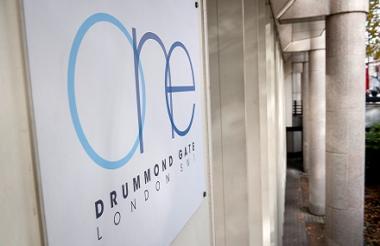Other infrastructure bodies have joined NCVO in raising concerns about how the Charity Commission might disqualify people from being trustees, in their responses to the regulator's consultation on the power.
The Charity Finance Group, Directory of Social Change and Acevo, in their submissions to the Charity Commission’s consultation on the use of its trustee disqualification powers the sector bodies, today echoed NCVO's concerns that the regulator's position lacks safeguards.
CFG said: “A heavy handed use of this power would have a ‘chilling effect’ on trustees and therefore inhibit the ability of charities to recruit trustees in the future.
“The Charity Commission must avoid the temptation to ‘look tough’ and use this power to disqualify trustees in order to demonstrate its robustness as a regulator and superficially improve trust and confidence in the charity sector.”
CFG added that it is also “deeply concerned” about the use of HMRC’s ‘fit and proper person’ test as a condition to disqualify trustees as it is “not defined in legislation and will therefore be at the discretion of HMRC”.
Trustees should not be ‘tried by media’
CFG is also concerned about how the Commission might interpret when disqualification is in the public interest and said it should not “lead to individuals being ‘tried by media’”.
It said it was concerned by the example about an “adverse finding by a self-regulatory or umbrella body” outlined in the Commission’s policy paper.
“Charity Finance Group does not make findings on our charity members or individuals that work within these charities. It is our understanding that this is true for the other main umbrella bodies that work within the sector.
“However, we can foresee a situation in which an umbrella body makes a critical comment or report that references the actions of particular charities. It is important that this could not be used as evidence,” CFG said and called for greater clarity on what is considered an umbrella body.
‘Fundamentally illiberal and overly subjective’
DSC’s submission also criticises the condition which allows the Commission to disqualify people from trusteeship if it is considered to be a in the public interest as “fundamentally illiberal and overly subjective”.
“Despite assurances and guidance published by the Commission, DSC maintains that this clause gives the regulator too much power to decide who can volunteer to be a trustee of a charity,” DSC said.
It warned that there is the risk that “disqualifications could be made based on the subjective views and opinions of whomever is running the Charity Commission, which might be unduly influenced by media or political pressure”.
Produce further guidance
Acevo declined to share its full consultation response with Civil Society News. But it has sent a summary which indicates that it has similar concerns and urged the Commission to produce more guidance.
It said: “The social leaders’ network Acevo broadly supports the Charity Commission’s aim of strengthening its powers to tackle abuse and non-compliance with charity law. Acevo has consistently emphasised the importance of effective anti-abuse measures to maintain the highest standards of probity in the sector, and to protect the reputation of both individual charities and the sector as a whole.
“However, we are concerned that the measures proposed in the consultation are too broad. We recommend that further guidance is produced. This guidance would clearly communicate the circumstances in which the Charity Commission would use its new power and would make transparent the rationale behind any decision.
“Moreover, prior to any final decision to remove a trustee based on condition F in test one the Commission would need to issue a clear argument in order to provide that trustee the opportunity of defence and/or appeal.”









